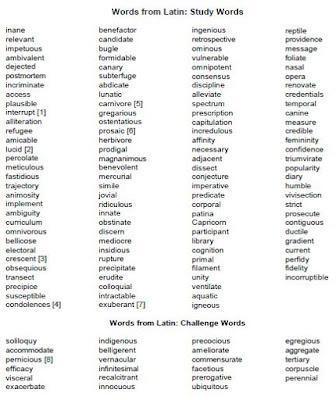Hello Bee Hivers!
I've created this blog for kids interested in participating in the homeschool Spelling Bee and/or GeoBee. Follow along for tips on being a good contestant and having fun with Bees, or just for fun, games, and fascinating information on language and geography / current events..
A little about myself: I'm a homeschooling mom whose homeschoolers are grown now, but I'm still very active in the homeschooling community in and around Portland, Oregon.
I became interested in the
Scripps National Spelling Bee when our homeschool group,
Village Home, was invited to send a representative to the regional Bee in Portland, in 2006. My daughter Shaina was excited about this idea, so we started a Spelling club and held a Homeschool Bee that year. Shaina won that Bee, then won the Regional Bee, and was off to Washington DC to compete in the national Bee! She didn't win, but it was an amazing experience. Shaina went on to compete again the following year - and achieve National Semifinalist status!
Since then I've continued to work with middle-school kids in preparation for the National Spelling Bee and the National Geographic GeoBee, and host the homeschool Bees at Village Home. Every year is a new adventure, and we've sent quite a few kids to the National competition!
I'm looking forward to hosting this year's Bees! They'll be held at Village Home in January - stay tuned for dates and registration information.
To get you started, here are some great reading list suggestions from the National Spelling Bee:
Each book on the 2020 Great Words, Great Works reading list is given a "Bee"rating based
on the challenge the book will likely provide to the reader. Books rated "One Bee" are great for
emerging readers, and the level of challenge progresses through "Two Bee" and "Three Bee." The
Scripps National Spelling Bee selects Great Words, Great Works titles annually for the richness of
their vocabulary and for their stories' ability to spark the intellect and the imagination. All words on
the 2020 School Spelling Bee Study List may be found in the pages of these books. Happy reading!
ONE BEE
• Curiosity: The Story of a Mars Rover by Markus Motum
• Houndsley and Catina by James Howe
• Zoey and Sassafras: Monsters and Mold by Asia Citro
• Fergus and Zeke at the Science Fair by Kate Messner
• The Sandwich Thief by André Marois
• The Magician’s Hat by Malcolm Mitchell
TWO BEE
• The Big, Bold, Adventurous Life of Lavinia Warren by Elizabeth Raum
• When the Sky Breaks: Hurricanes, Tornadoes, and the Worst Weather in the World
by Simon Winchester
• Ava and Pip by Carol Weston
• Winterhouse by Ben Guterson
• Louisiana’s Way Home by Kate DiCamillo
• Finding Langston by Lesa Cline-Ransome
THREE BEE
• Racing Manhattan by Terence Blacker
• This Promise of Change: One Girl’s Story in the Fight for School Equality by Jo Ann
Allen Boyce
• The Truth as Told by Mason Buttle by Leslie Connor
• The Night Diary by Veera Hiranandani
• The Disappearing Spoon: And Other True Tales of Rivalry, Adventure, and the
History of the World from the Periodic Table of the Elements (Young Readers
Edition) by Sam Kean
• Shadowshaper by Daniel José Older



